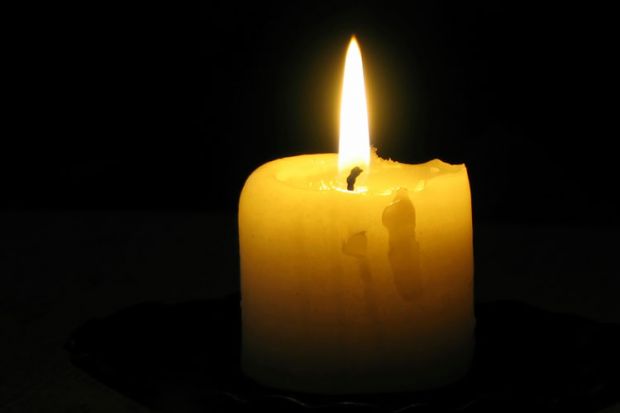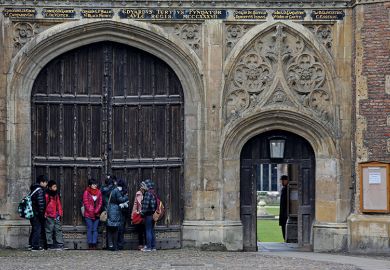Christmas comes upon the University of Oxford quite suddenly. No sooner have the autumn streets been flooded with eager undergraduates pouring out of the Sheldonian Theatre in subfusc than they are flooded with a different specimen: the interviewee.
As a specimen, they are peculiar to Advent, appearing only for the first two weeks of December. They can be spotted quite easily: wide-eyed, often tearful, agog at their surroundings and completely and utterly lost.
To save them wandering around permanently glued to Google Maps, they are often accompanied by the aforementioned undergraduate specimens, easily recognisable by their knowing look and college sweatshirts, frequently seen herding interviewees into college lodges, down alleyways, up turrets and through concealed doors on Logic Lane.
Throughout this week, across the length and breadth of the university, nervous interviewees sit outside the offices of dons and fellows in draughty corridors, peering anxiously at notices on the wall, wringing their hands, wishing they had worn different shoes.
Inside these offices, dons and fellows summon interviewees to sit on sofas in their book-lined studies and perform as they privately titter to themselves at the blunders and long to be left alone with John Donne or Montaigne. Or so the story goes.
Nobody forgets their Oxbridge interview. As an intellectual rite of passage, it is imprinted upon the psyche, looming up every so often to remind one of the earnestness of youth and the bald desire to succeed.
Whether you excelled or embarrassed yourself, it is recalled as a threshold moment between school and university, a moment when the world fans out into possibilities beyond the classroom.
Plenty of people remember their interview as a reckoning with a Byzantine establishment, rendered more acute by the grandeur of the surroundings.
When I asked friends who had been to Oxbridge what struck them in particular, almost every single one of them came up with an example of a question they couldn’t answer: “What’s the difference between clever and intelligent?”, “Forget the syllabus, what books do you read for pleasure?”, “What does ‘firmament’ mean?”.
Like Scrooge, most of them are haunted by the frightening ghosts of interviews past. Ghosts that remind one of the ignorance and gaucheness of youth, of the wobbly transition between adolescence and adulthood. This is certainly true for me. Of my Oxford interview, I can remember only the questions I couldn’t answer, the shoes that pinched my feet and the overwhelming anxiety (usually visited upon me in the middle of the night) to go back and give different, more sophisticated answers, namely the difference between Rimbaud and Apollinaire.
Eighteen years on, the narrative of the Oxbridge interview hasn’t changed at all. If anything, it’s become worse.
Along with the associated mythology and rumour surrounding the interview process, Oxbridge is the worst in the country when it comes to accepting candidates from disadvantaged backgrounds, which reinforces the notion that its corridors are for white, privately educated men.
I wonder how much of this narrative is influenced from the inside. By giving voice to the ghosts of interviews past in all their ghoulishness, are we dissuading future interviewees from applying? I can’t help but think that we are.
The Oxford interview represents what is fundamental to an Oxford education: the ability to engage in reasoned, intellectual debate and to defend one’s thinking when challenged. Skills that all interviewees of Oxbridge calibre should be able to offer. As Mary Beard says, “Let’s recognise we’re all on the same side.”
And so, this Christmas, I shall remember my Oxford interview with pride. I shall shoo away the ghosts of interviews past and celebrate instead the extraordinary opportunity that the interview presents, whether one ends up at Oxford or not.
Like Scrooge, I will overcome my apathy and revel at the sight of the Christmas interviewee in all their tight-shoed, Shakespeare-clutching, hand-wringing, Tiny Tim-esque glory. I may even open my long-forgotten copy of Apollinaire’s poems.
Arabella Byrne holds a PhD in French from the University of Pennsylvania and master’s from the University of Oxford. She is writing a novel based on the war diaries of Jacques Rivière.
Register to continue
Why register?
- Registration is free and only takes a moment
- Once registered, you can read 3 articles a month
- Sign up for our newsletter
Subscribe
Or subscribe for unlimited access to:
- Unlimited access to news, views, insights & reviews
- Digital editions
- Digital access to THE’s university and college rankings analysis
Already registered or a current subscriber?




